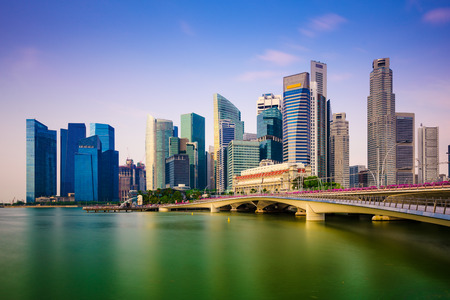18 January, 2018
Just before Christmas Keppel Offshore & Marine Ltd, a Singapore incorporated company, entered into a Deferred Prosecution Agreement (DPA) with the United States Department of Justice. The DPA provides for payment of penalties of over US$400 million. The penalties are to be divided between the United States Treasury and the governments of Brazil and Singapore.
The DPA relates to bribery of public officials in Brazil over contracts awarded by Petrobras, the Brazilian state-controlled oil company embroiled in a long-running bribery scandal.
As part of the global resolution of the matter the company was served with a conditional warning by the Singapore authorities providing for payment of a criminal fine to Singapore of over US$100 million. The press release issued jointly by the Singapore Attorney-General's Chambers (AGC) and the Corrupt Practices Investigation Bureau (CPIB) on 23 December 2017 states that the conditional warning was served on the company "in lieu of prosecution, for corruption offences punishable under Section 5(b)(i) of the Prevention of Corruption Act, Chapter 241 (PCA)".
The matter is significant for a number of reasons:
a. this is by far the highest penalty levied against a Singapore company to date;
b. this is the first DPA involving cooperation between the US and Singapore authorities; and
c. this is a rare example where a Singapore company has been penalised by Singapore authorities under Singapore anti-bribery laws for bribery committed abroad.
Liability under Singapore laws
Historically, Singapore companies may have been under the impression that Singapore anti-bribery laws had limited extra-territorial reach, compared to the United States Foreign Corrupt Practices Act (FCPA) which has notoriously broad application. Coupled with the difficulties in establishing criminal corporate liability under common law principles, this meant that Singapore companies have seen little prosecution for corrupt activity abroad. Under common law principles, criminal corporate liability tends to apply only where it can be shown that individuals who constitute the "directing mind and will" of the company directed or at least knew about and acquiesced in the wrongdoing.
Section 5(b)(i) PCA prohibits "any person" (including a corporate entity) from bribing another person. This section taken alone only applies to bribery in Singapore. However, there are a number of provisions in the PCA and the Singapore Penal Code which provide for extra-territorial reach of the bribery provisions:
a. section 37 PCA provides for personal liability of Singapore citizens committing acts of bribery abroad;
b. section 29(b) PCA in combination with section 108A Penal Code provides for criminal liability where a person, in Singapore, abets the commission of an act of bribery abroad "in relation to the affairs or business or on behalf of a principal residing in Singapore".
Although the statements made by the AGC and the CPIB do not make reference to these provisions, it must be assumed that these provisions were relied upon to extend liability under Singapore anti-bribery laws in relation to the bribery of Brazilian public officials in Brazil.
The factors set out in the Statement of Facts attached to the DPA that are likely to have been significant in giving rise to the penalty being imposed against the company under Singapore laws are that:
a. several senior executives of the company expressly instructed or authorised the making of improper payments;
b. a "sub-executive" of the company attended meetings with Brazilian public officials and the consultant in Brazil to discuss the bribery payments;
c. the consultant used to interact with public officials in Brazil and through whom the improper payments were made appears to have been engaged by the company and/or the terms of the agreement were discussed with and agreed by senior executives of the company; and
d. most of the senior executives involved in the bribery were Singapore citizens.
It is noteworthy that while the investigation against the company has been concluded by entering into the DPA and issuing the conditional warning, the AGC and CPIB have made it clear that investigations against individuals involved are ongoing.
Liability under the FCPA
Liability under the FCPA appears to have been based on the facts that:
a. some of the company's senior executives involved in the bribery were also employed by the company's wholly-owned US subsidiary;
b. some of the company's senior executives were either permanent residents of the US or US citizens;
c. one of the agreements entered into with the consultant used to make the improper payments was signed in the US; and
d. some of the improper payments were made to bank accounts in the US.
While it is generally known that the US authorities will extend the reach of the FCPA based on what may be often perceived as tangential connections with the US, this matter is an indication of the willingness of the Singapore authorities to apply Singapore laws with respect to bribery committed abroad.
Singapore companies may wish to review their compliance procedures with a view to their operations abroad to avoid procedures being brought against them and members of their management by the CPIB and AGC.
For further information, please contact:
Kyle Wombolt, Partner, Herbert Smith Freehills
kyle.wombolt@hsf.com

.jpg)





